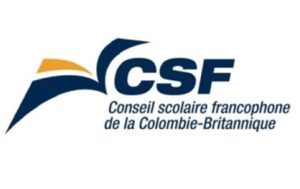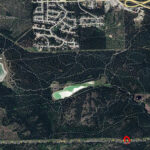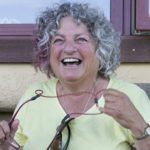Home »

Proposed Francophone school update meeting held
By Michelle Forbes
On May 9, at the Hotel Kimberley, four representatives from Vancouver’s Francophone School Division of BC (Conseil Scolaire Francophone – CSF), met with Francophone parents in the region to discuss the progress of the proposed Kimberley Francophone school.

Bertrand Dupain, the CSF Superintendent, Roger Hebert, the School Board Trustee for southeastern B.C., Pascal Cyr, CSF Public Relations, and Sylvain Allison, the Secretary Treasurer, were all in attendance, and took turns addressing the parents.
Sylvain Allison said that the recommendation of the CSF is to open a school for Kindergarten to Grade 3 in September, adding Grade 4 in 2019, and adding another grade each year, up to Grade 7. The school would initially employ one full time teacher, a principal, a secretary, and support staff as needed, adding new teachers as the school grows.
One teacher would teach the 13 students in the same class for subjects, such as music, art, Phys. Ed., and oral French, while the group would be split up for classes, such as math, science and written French, with the Principal teaching a second group.
Bertrand Dupain discussed the largest remaining hurdle – finding a suitable building in time to hire staff for the upcoming school year. Often new rural Francophone schools work with an English school, renting extra classrooms, allowing access to a library, gym, and playground. Unfortunately School District No. 6 is at capacity in Kimberley, and does not have any space available to rent.
The CSF is looking at other spaces, including the newly acquired property of the old Meadowbrook School. The Francophone school board sees the old Meadowbrook school as the best option, as it is already set up as a school. Repurposing other buildings can be challenging, as student safety must be addressed, including security of the premises, fire exits, hand railing heights, other groups using the buildings, and other considerations.
The new owners of the Meadowbrook location are still deciding what to do with the location, so its future is uncertain.
 Parents from Cranbrook raised concerns about the distance to Meadowbrook. The CSF usually works with English school systems for bussing, but as Cranbrook and Kimberley belong to different school divisions, there is currently no bussing in place between the cities for school.
Parents from Cranbrook raised concerns about the distance to Meadowbrook. The CSF usually works with English school systems for bussing, but as Cranbrook and Kimberley belong to different school divisions, there is currently no bussing in place between the cities for school.
Without transportation between cities, this would decrease the number of students attending the school. Concerns were raised about having enough children to open, but Dupain answered, “You plant trees for the rising generations.”
When they open schools, it is based on how many children will attend, the number of younger siblings, growth of the French community, and how strongly the Francophone community supports the French school.
Francophone schools have started with as few as seven students, if they were able to show the potential for consistent growth. The CSF representatives asked the parents in attendance to again gather names of children who plan to attend the Francophone school next year, and Marie Christine, one of the parents, agreed to gather names.
If you would like to add your child to the list, you can contact her at: [email protected].
With many benefits of French education, both Dupain and Hebert discussed the difference between Francophone education and French Immersion. While French Immersion gives children a second language, Francophone school gives children an additional primary language, so they graduate with two first languages. In addition to language, they are taught about their culture, and are able to relate to their heritage in a way that is often lost when living in English areas.
Also, parents are expected share in their children’s French education. The school teaches school vocabulary, while families continue the French education at home with everyday vocabulary.
The community is very important in the Francophone schools, as parents help make educational decisions about how the school will run, including which classes the students would be taught together, and which subjects would be taught by separate teachers. Revelstoke parents helped Fernie get their Francophone school in place, and Fernie parents are willing to help Kimberley parents.
Allison reminded parents that the Francophone admission requires one parent’s first language (which is still understood) to be French, or that one or both parents were educated in French (but not French Immersion).
Extra support in learning French is offered for students first entering Francophone schools similar to ESL support offered in English schools. Immigrants from French speaking countries have the same requirements as Canadians.
Parents are very much looking forward to the prospect of a Francophone school, but are still waiting to see if a suitable location can be found. While they wait, they will continue collecting names and helping suggest other locations, which may be suitable for a Francophone school.
e-KNOW







